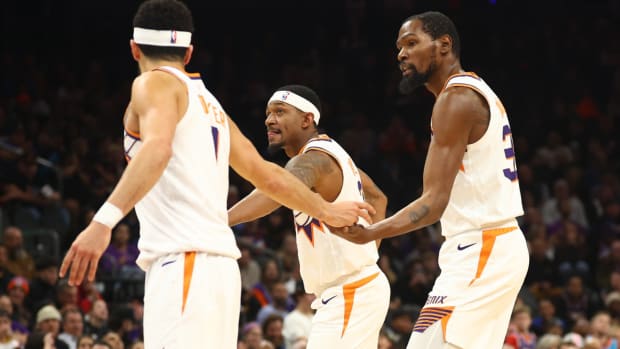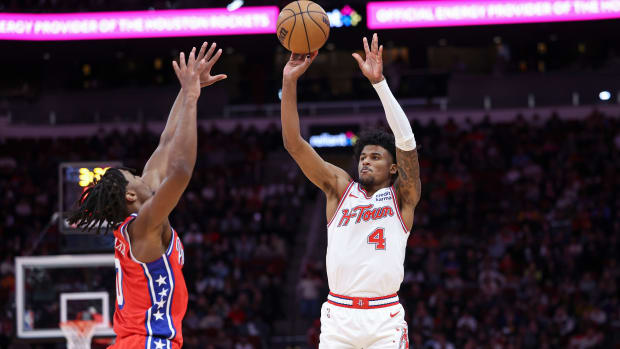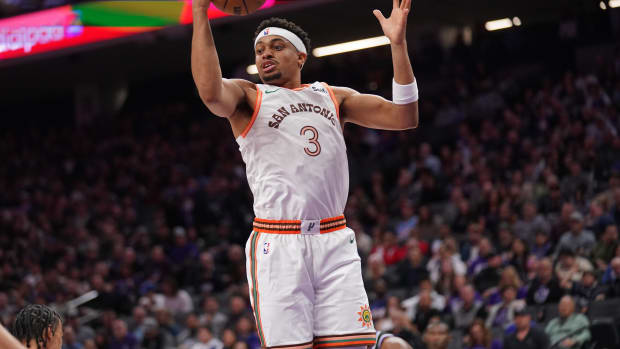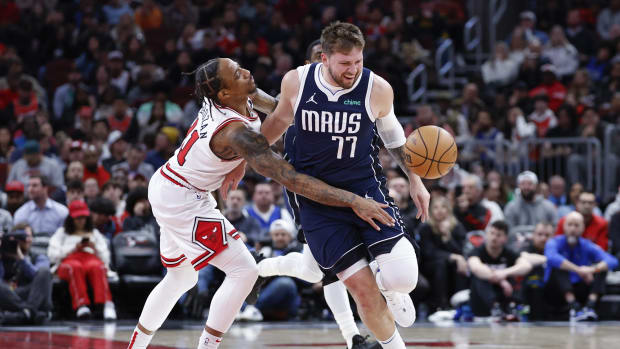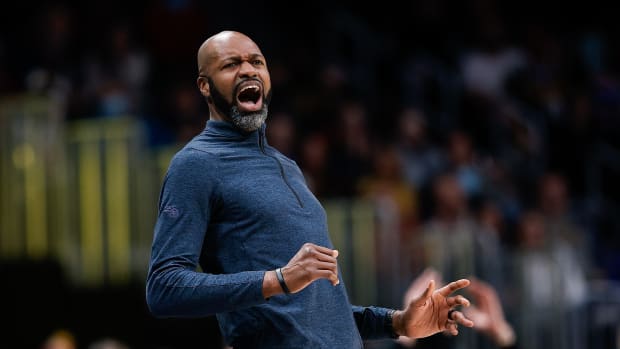NBA season in review: Calling it a year for the Thunder, Suns and Jazz
Grueling battles for the postseason are becoming an annual tradition in the Western Conference, leading to heartbreak for at least one worthy candidate that would be playoff-bound if it played just a few hundred miles to the east.
This season is no different.
The Pelicans and Thunder went into the final day of the regular season deadlocked in the standings. New Orleans eventually emerged after outlasting the Spurs in a regular-season finale that went down to the final minutes. The Pelicans finished their year 47-37, as did the Thunder after blowing out the Wolves in their finale. New Orleans won on a tiebreaker.
Then there's the Jazz, who struggled mightily in the first half only to transform into one of the NBA's best in the second half. Utah owns one of the league's best records since the All-Star break and its No. 1 defense.
Unfortunately for Utah, New Orleans and Oklahoma City, the Western Conference is an ultra-competitive field and not everyone can make the cut. Before we move on to the postseason, let's take a look at what went wrong and what the future holds for three West teams that just missed the cut.
• MORE NBA: Alternative awards | Postseason primer | Playoff questions
(All stats and information current through April 15)
Oklahoma City Thunder
Record: 45-37 | Missed playoffs by: Lost on tiebreaker
Why things went wrong: Injuries. After Kevin Durant went down for the season, it was readily apparent the Thunder would need a huge performance from Russell Westbrook down the stretch, and the Thunder star didn’t disappoint, reeling off triple doubles as on a nightly basis. But even Westbrook couldn't compensate for the production missing from the lineup and the chemistry issues Durant’s absence created on the court. As SI’s Ben Golliver explains in his final grades for every NBA team, “No one last summer thought Oklahoma City would still be fighting to avoid the lottery on the last day of the regular season.”
Reason to believe: While Durant is sidelined, the time off will hopefully give the All-Star forward time to heal his injured foot completely, reuniting two of the league’s best players. Westbrook’s MVP-caliber season is one of the biggest reasons to believe the Thunder will be contenders going into next season, but GM Sam Presti’s moves at the trade deadline should also give fans some hope. Enes Kanter has proved to be a potential building block for the future should OKC choose to re-sign him and Kyle Singler and D.J. Augustin have contributed as well.
Reason for concern: Durant's impending free agency and Westbrook's stellar play with his running mate off the floor will only brighten the spotlight and increase the scrutiny of these two stars if they don't make significant strides next season (i.e. win a championship). With Durant hitting the free agent market in 2016 and Westbrook set to follow in 2017, the future of the Thunder depends on how well Presti can improve the bench while keeping salary cap space available to sign the team’s two most important players. But after three foot surgeries this season, the Thunder’s biggest concern heading into next season is Durant’s health.
Record: 39-43 | Missed playoffs by: 6 games
Why things went wrong: Inconsistency. The Suns have completely unraveled after being the surprise story of last season. Since shipping out Isaiah Thomas and Goran Dragic at a busy trade deadline, the Suns posted the worst three-point percentage in the league; head coach Jeff Hornacek struggled to replace the production of the three-headed monster in the backcourt (Thomas and Dragic combined for 31.4 points per game); and the Suns' numbers understandably dipped as a result, leading to the team dropping 10 of its last 11 games of the season.
Reason to believe: Although the Suns fell flat on their face down the stretch, fans can rest easy knowing that their team is in good hands. Hornacek’s coaching abilities are proven and GM Ryan McDonough is building a solid young team with a salary-conscious approach. With a core group of Eric Bledsoe, P.J. Tucker, the Morris Twins and Alex Len, the future will be bright in Phoenix if they’re able to add more talented players who don’t clash with the team’s overall personality and chemistry on the court.
Reason for concern: The Suns were in contention for the playoffs this season until GM Ryan McDonough decided to scrap the current look of his roster by pulling off a number of moves at the deadline. By clearing the logjam at the point guard position, McDonough opened up the team to all kinds of issues, resulting in an inconsistent, disastrous stretch to end the season. The biggest reasons to be alarmed in Phoenix are the team’s recent meltdown, the idea that they’re going through the rebuilding phase again, and the toxic atmosphere that may be festering after multiple player run-ins (Marcus Morris, Gerald Green) with the team’s head coach.
Utah Jazz
Record: 38-44 | Missed playoffs by: 7 games
Why things went wrong: Too little too late. The Jazz played like a top-10 team in the second half, roaring back from a rough start to the season and finishing out the year stronger than several playoff teams. It was just too little too late for a team that dug themselves an enormous early-season crater (5-16 start) they couldn't dig itself out of.
Reason to believe: Heading into the All-Star break, the Jazz were 18-33 and SI.com’s Matt Dollinger had the struggling squad ranked No. 24 in his weekly Power Rankings, just ahead of the lowly Philadelphia 76ers. Since then, the Jazz have pieced together one of the best records in the NBA, outpacing the majority of the teams still vying for a championship, all while increasing its net rating from -3.1 to 8.4. The team’s defense has also been the best in the league since the midseason break, undoubtedly due to the positive impact of rim-protecting aficionado Rudy Gobert, who’s averaging 9.5 rebounds and 2.3 blocks per game. The final reason to believe in the future of the Jazz? The team’s average age is merely 23.3, potentially giving players time to grow up together.
Reason for concern: The first half of the season featured a number of issues that could haunt the Jazz as they try to carry their recent momentum into next year. First, Utah’s offense ranked No. 26 in the NBA with a paltry 95.2 points per game. Although its defense has become one of the best in the league, without a reliable offense, Utah will be doomed as it attempts to push its way into the upper echelon of the West. Another reason to be concerned with this team’s future is its maturity, or lack thereof. Since the Jazz's roster is so young, there aren’t many veteran players to show the younger guys along. In terms of improvement, most of it will come internally. Rudy Gobert has showed signs of stardom, but Dante Exum and Trey Burke still have a way to go. Utah's backcourt prospects will need to mature quickly if the team is going to compete for a playoff spot next season.






























